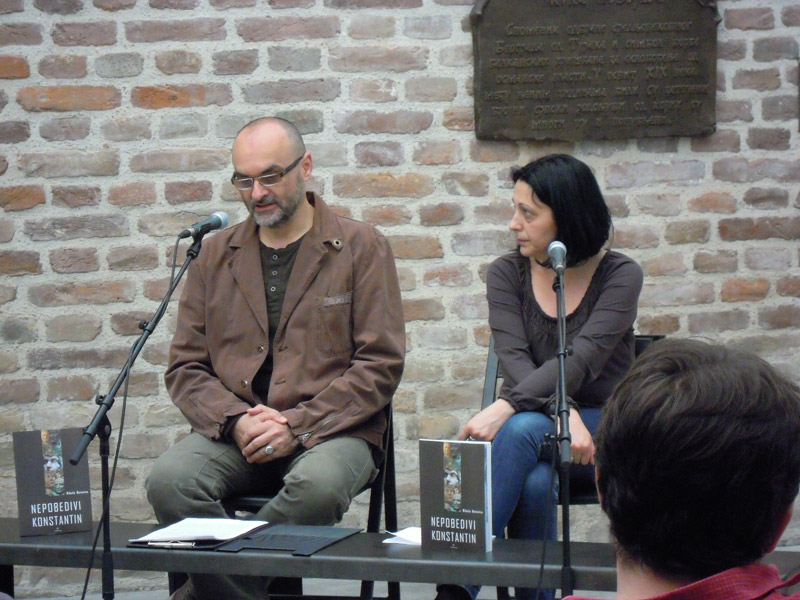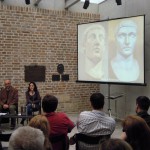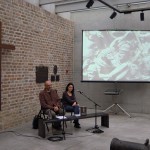Belgrade, May 29th 2013 – On Tuesday May 28th 2013, 7pm at Nebojša Tower, as part of the series of lectures “The Edict of Milan and Emperor Constantine” book presentation and lecture “Invincible Constantine” was given by Nikola Keravica with special reference to the Battle of the Milvian Bridge.
During his lecture Nikola Keravica stated that:
The military exploits of Flavius Constantine were almost forgotten half a century after his death.
John Chrysostom, one of the most illustrious men of his time, said the following about Constantine: “He made (renewed) many great cities and conquered numerous barbarian tribes, whose names we do not remember today”. And even today many of Constantine’s military achievements have often been neglected in a similar manner, pushed aside by the importance of his other deeds. On the other hand, there are only a few battles that have left such a huge impact on the course of history as the battle that took place by Milvian Bridge on October 28th 312. The manner in which the facts of what happened immediately before and during the battle was presented depended mostly on the author`s position towards the Christian religion. Thereby a military-historical aspect of this event has often been neglected, while the theological and even psychological elements related to its participants were prioritized. A careful reading of the available historical sources enabled us to show the Battle of Milvian Bridge as a real military event that took place within the framework of theoretical and practical skills of the rules of warfare of late antiquity. This battle was not the first, the largest nor the last military victory of Constantine the Great. The opponent he defeated was not someone whose defeat itself would bring glory to the victor. But it was undoubtedly a successful finish of the campaign Constantine almost invariably led from crossing the Alps in early spring to the triumphal entry into Rome on October 29th 312. Conquest of the capital enabled him to govern western half of the Empire autonomously, completely equal in everything to Licinius who ruled the East. The following year 313 they passed an edict of religious tolerance in Milan allowing Christians to freely practice their religion. Thanks to Christian historians, Lactantius and Eusebius, the saga of the alleged vision that bestowed a mythical aura on the battle has been preserved and made it a crucial event in the history of religion. The Battle of Milvian Bridge, inseparably linked to Constantine`s vision, eventually became the symbol of fundamental change of religious policy and overall social order of the late Roman state.







